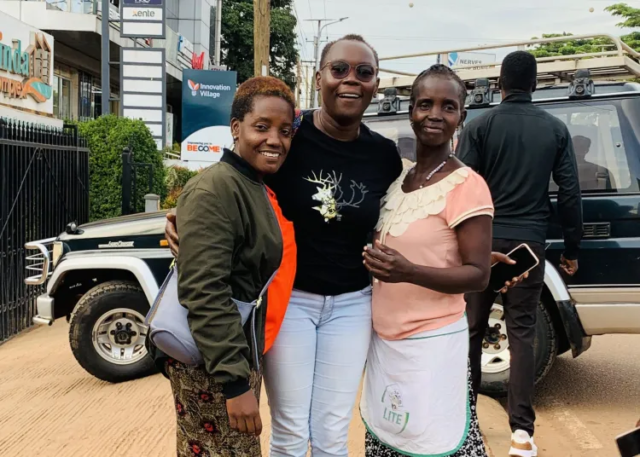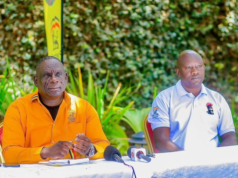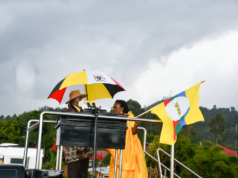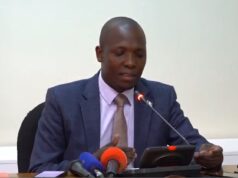
According to the World Health Organization (WHO), 15 percent of the world’s population, or estimated 1 billion people, live with disabilities. They are the world’s largest minority.
Ms Grace Areba is part of the 1 billion people living with disabilities and, although she can see and write, she has a challenge of accessing information because she is deaf.
Removing communication barriers is crucial to improving access to health, education and other obligatory services for people like Areba to achieve their full potential.
Areba is the fifth born and only child with a disability in her family. She was not born deaf; but became deaf at a tender age. For a long time, she lived in her own world and interaction with the rest of the world was a constant challenge, since her family members and the community had not embraced sign language.
Areba narrates how she was seen as a cursed child in her own community because of her disability. “I had to attend a public school with normal children despite being a deaf child. I am a Kenyan citizen. I consider myself linguistically and culturally minority. I am deaf by disability and very proud of my disability regardless of what the community or society think/look at. I believe there is no single soul seat here or there that is useless and God has blessed everyone in His own unique way.’’
To stir change, Areba has decided to advocate for prevention of violence, inclusion, and amplification of the voice of the voiceless, access to equitable information, affirmative development for deaf women and girls. She has made some impacts through advocacy and awareness creation.
‘’As a deaf woman, my tenancy is not in doubt when many realize the extra work I had to put in, while undertaking my graduate course,’’ she recalls.
Areba was first rejected at university just because she was their first student with a disability, and they claimed lack of reasonable accommodation for students. But this never stopped her pursuit for education and advancement in her career journey. It took the intervention of the deputy dean of students who not only looked at her disability but capacity beyond disability to achieve great academic results.
In spite of all the hurdles, Areba’s motivation was driven by the capacity to be someone given the chance and it fuels her perseverance to be a better version of herself. She has excelled in her career and assisted some deaf people to secure employment opportunities because she is an example of possibility. With so many doors closed due to her disability, she chose to use her rich experience to address the inequalities and violations suffered by people with disability, especially the deaf fraternity.
“Today I am a board of trustee representing the interests of people with disabilities. I believe access to information for all remains pivotal in mainstreaming people with disability needs in health, policy, infrastructure among others,’’ she emphasizes.
How can the media be inclusive while sharing information?
To conform to the UN SDG agenda of leaving no one behind, the media can be more diverse by listening and learning from the community that is directly affected by the issues that it would wish to air and/or tell, seek out and look for relevant feedback from diverse sources.
On how she would encourage PWD’s to break the barriers, Areba says every barrier is meant to be broken, nothing is impossible if one is determined to get what they want in life. “To my fellow women and girls in the rural areas, you are powerful, capable and resilient. You have the ability to achieve anything you set your mind to, and to make a positive impact in the world around you,” she says.
She concludes with the old saying: “A mother who gives birth to triplets does not ask God for an extra nipple’’. She explains that this saying embodies resilience and adaptability, which are crucial traits in both personal and professional life. So when faced with unexpected challenges, instead of wishing for ideal circumstances, we should channel our energy into finding creative solutions and making the most of our resources. Embrace challenges as opportunities for growth and innovation.






